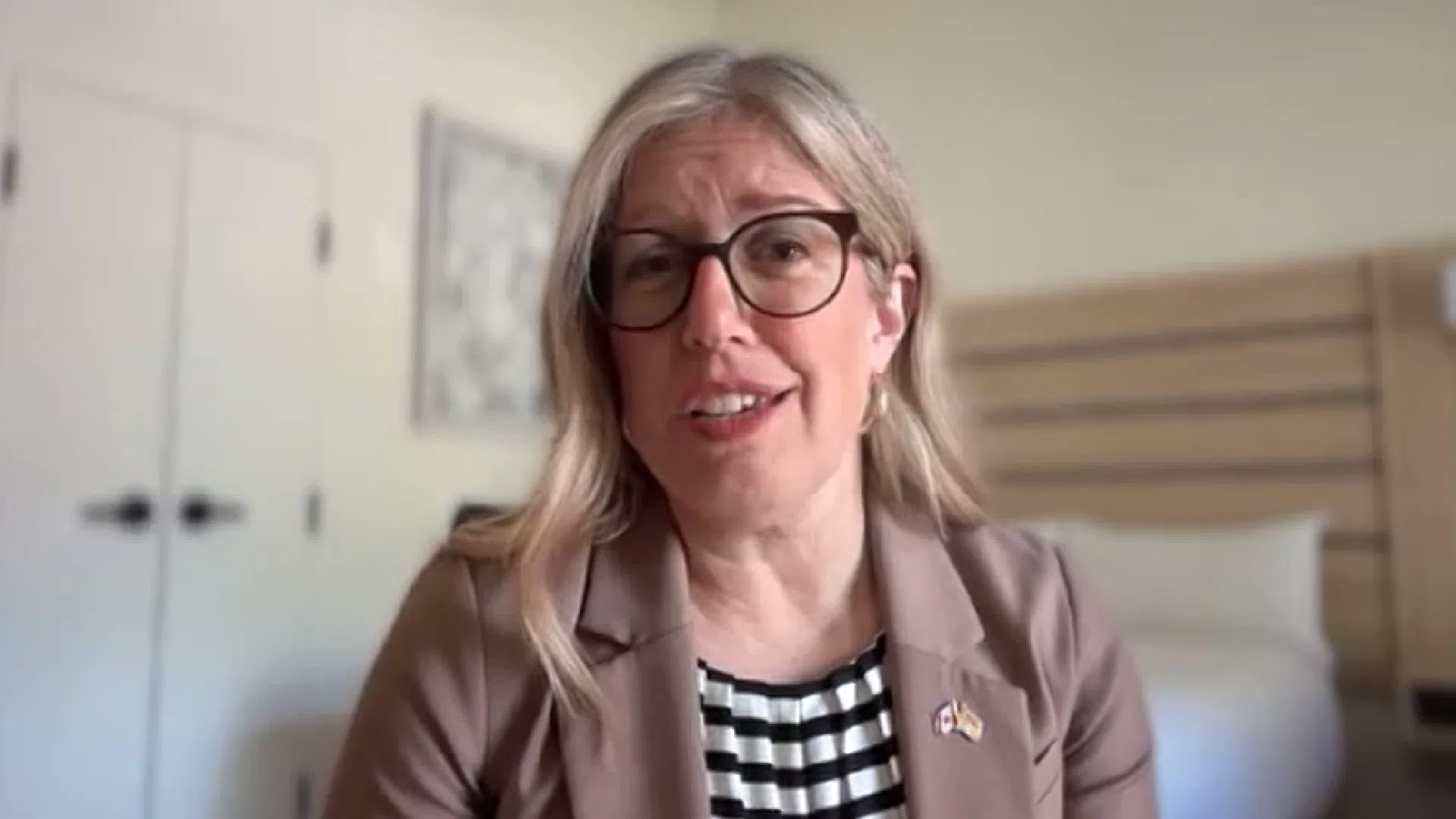International and internal trade continued to be big topics of discussion as Canada’s premiers met in Ontario for several days this week.
It comes as the U.S. president has set an Aug. 1 deadline to reach a trade deal before slapping a 35 per cent tariff on Canadian goods.
New Brunswick Premier Susan Holt said she was encouraged by discussions the premiers had with the prime minister.
“I trust that we have the team in place that’s going to get the best deal possible for the Canadian economy,” Holt told reporters.
“But we also have to look at if it’s a better deal than what we have right now and if the timing is right.”
Holt said New Brunswick felt well represented at the meetings, and she was happy to see softwood lumber in the conversation.
Canada has a lot of tools at its disposal, the premier said, and the United States needs to understand that.
“We could get along without them. They don’t seem to think that’s the case, but understanding that there’s a whole world of defence contractors out there and there’s a whole world of people who want what Canada has and what New Brunswick has,” added Holt.
Internal trade barriers
Federal, provincial and territorial governments have been working to remove internal trade barriers in light of the ongoing trade dispute with the United States.
During the meetings, New Brunswick signed a memorandum of understanding with Manitoba to improve trade and labour mobility.
It is the third such MOU the province has signed in recent weeks, following similar agreements with Ontario and Newfoundland and Labrador.
Holt said New Brunswickers should expect to hear announcements about even more MOUs being signed very shortly.
“There’s a real willingness among the premiers to continue to do this at the same time as we wanna see that [Canadian Free Trade Agreement] get over the finish line and have that really supersede as the ultimate free trade agreement for Canada,” she said.
“The deadline for the CFTA is at the end of this year, and I imagine by then we’ll probably be in a place where we will have concluded agreements with pretty much every province and territory by that point as well.”
Health transfers, immigration also discussed
The premiers also discussed health care and the need for Ottawa to enhance the health transfers it sends to provinces each year.
Holt said she believes the transfers should respond to the particular needs of each province and territory and not be on a per-capita basis.
“In New Brunswick, we have a population that is older and that is sicker than the rest of Canada, and so we think that the transfers should respond to the needs of Canadians,” she said.
The premier added that the federal government should take the same approach when it comes to immigration.
“We think that our immigration needs here in New Brunswick for critical sectors like health care, like construction, should be in the hands of provinces to be able to move more nimbly and respond as our labour markets require at a time when we’re trying to drive economic growth in order to be able to pay for health-care services,” she said.
“We are pushing the federal government to honour the constitutional powers given to provinces to direct their own immigration, and we got some openness from the prime minister to dig into that and do that work with us.”






